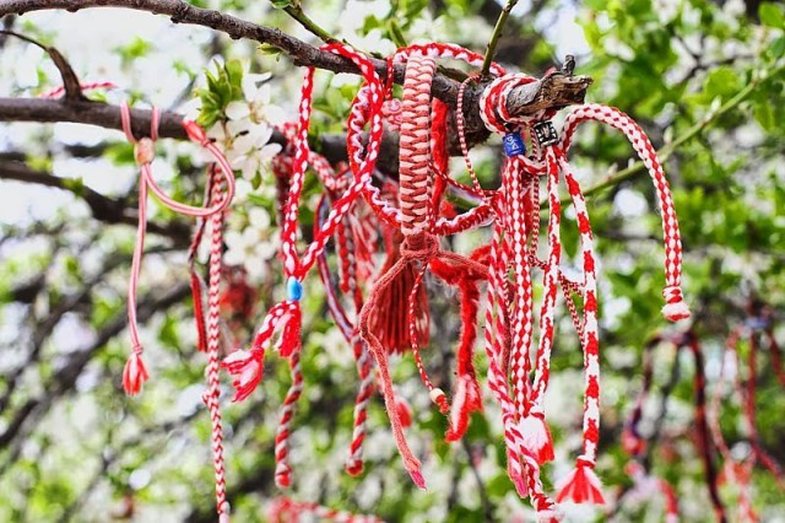
If you grew up in Albania (and many Balkan countries), you've probably seen or worn a summer wreath on your wrist during the month of March. But have you ever wondered why we do it and what this custom symbolizes?
The scythe is an ancient tradition, believed to have roots in pagan cultures and folk beliefs related to nature and the sun. The main idea is that the white and red threads represent the purity and power of the sun, protecting the wearer from evil and bringing good luck.
In some Balkan countries and Greece, this tradition is associated with the arrival of spring and the need to protect the skin from the first strong sun of the season. It was believed that children (and sometimes adults) who wore a summer hat would not get sunburned and would have good health throughout the year.
Summer symbolism
The summer dress is not just a nice and nostalgic accessory. It symbolizes:
New Beginnings – Set on March 1, which is symbolic of the start of spring and a new phase.
Luck and protection – It is believed to bring luck and protect against the evil eye.
Connection with nature – In folk tradition, the summer solstice is celebrated when swallows are seen for the first time or when flowers bloom, as a way to "release" good luck to nature.
How is it placed and when is it removed?
The summer wreath is usually made of white and red yarn twisted together. Some wear it until it breaks on its own, while others remove it when they see the first signs of spring, such as swallows or the first flowers of March.
Although today there are not so many people who believe in the protective powers of a summer solstice, it remains a beloved and nostalgic custom, connecting us to childhood and a beautiful tradition that has been passed down from generation to generation. And after all, who wouldn't want a little more luck and sunshine in their lives?





